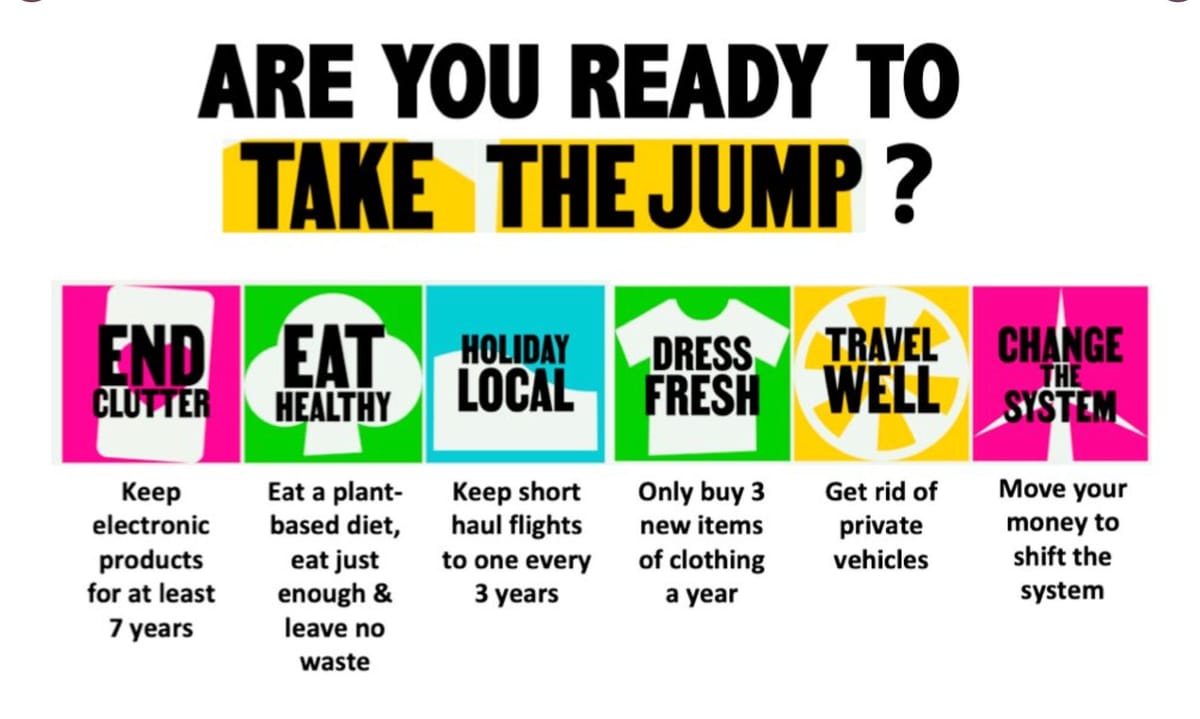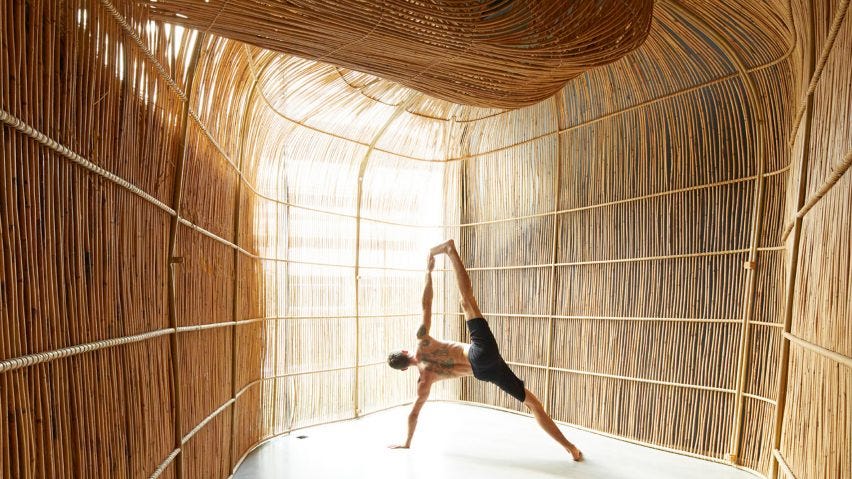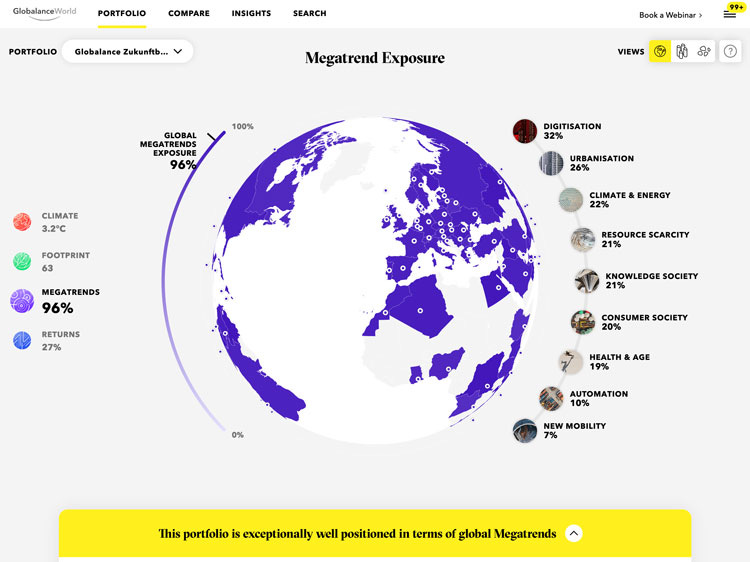
Take the Jump was “created by a group of people who wanted to change the feeling of powerlessness that so many of us have when we think about the future of our world”. The website asks visitors to “try six shifts in how you eat, travel, shop and how to change the system” for at least a month. It provides a toolkit to help and encourages those taking the challenge to connect with others in the community. Details here
Mock Cop26 is a youth led, youth run online conference “that will show the world what would happen if young people were the decision makers. We will be following a similar structure to the postponed COP26 climate summit to raise the ambition of our leaders when it comes to tackling the climate emergency”. It runs until December 1 here

Beautiful use of natural materials in this project from Thai architecture studio Enter Projects Asia. They used rattan – a type of climbing plant with a flexible woody stem – to create a set of four yoga studios in a Bangkok building. The project was shortlisted for a Dezeen Award. Story here
Planted has planned to launch its event “reconnecting cities with nature” at London King’s Cross in September but fell victim to Covid-19. Undeterred, the group has “evolved into an online discussion forum with some of the world’s leading experts in the fields of sustainability, design, architecture, food and rewilding”. Check out the Journal here

With the increased focus on the role of financial services in helping to tackle the climate crisis, a number of innovative platforms and brands are emerging. Dutch data design studio Clever Franke has developed an interactive platform for Swiss private bank Globalance which aims to help customers understand the societal and environmental impact of investing in businesses. Clever Franke’s Thomas Clever told Design Week that the tool will help answer “Very simple questions such as ‘what is the global warming potential of my portfolio’ or ‘on which country does my portfolio have a negative impact’ are at the heart of our platform.” Read the full story here
A new report from the Cambridge Institute for Sustainability Leadership “distils shared insights into how four leading multinational companies developed, aligned and integrated a purpose and strategy to transition to a sustainable economy”. The authors spoke to nutrition and health business DSM, Ingka Group (IKEA), flooring business Interface and Unilever, finding “ten principles that any leader company setting out to align and integrate its corporate purpose and strategy to transition to a sustainable economy should consider”. Details here

